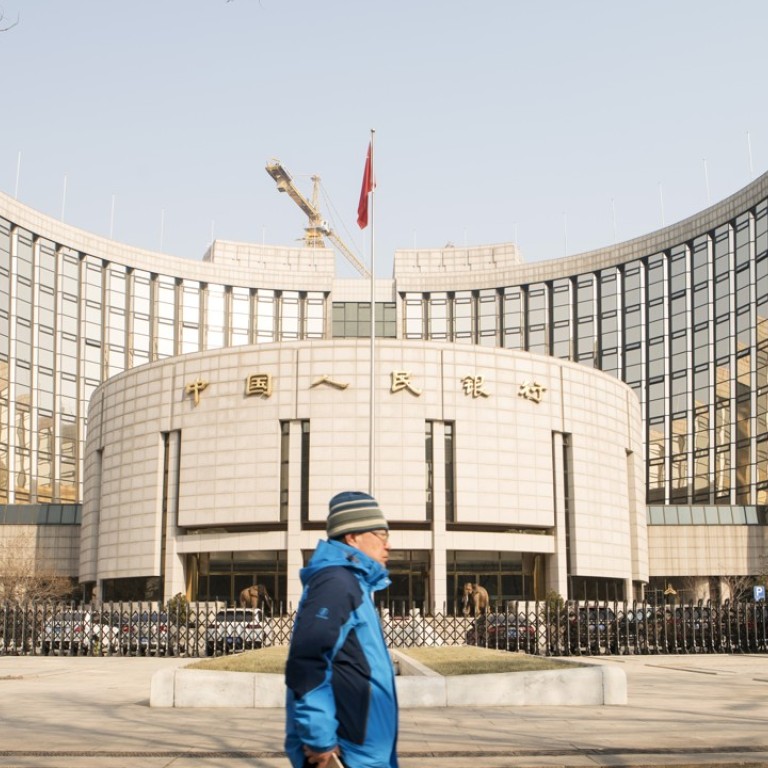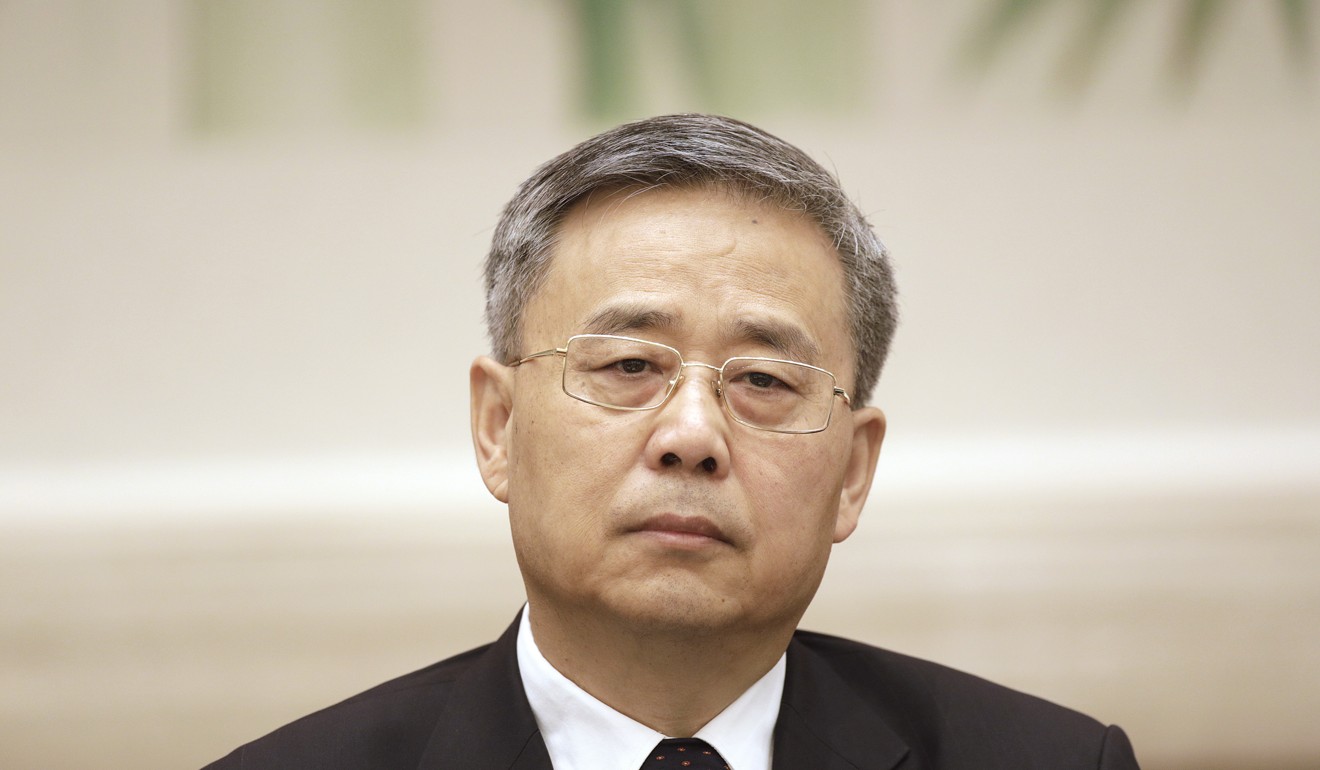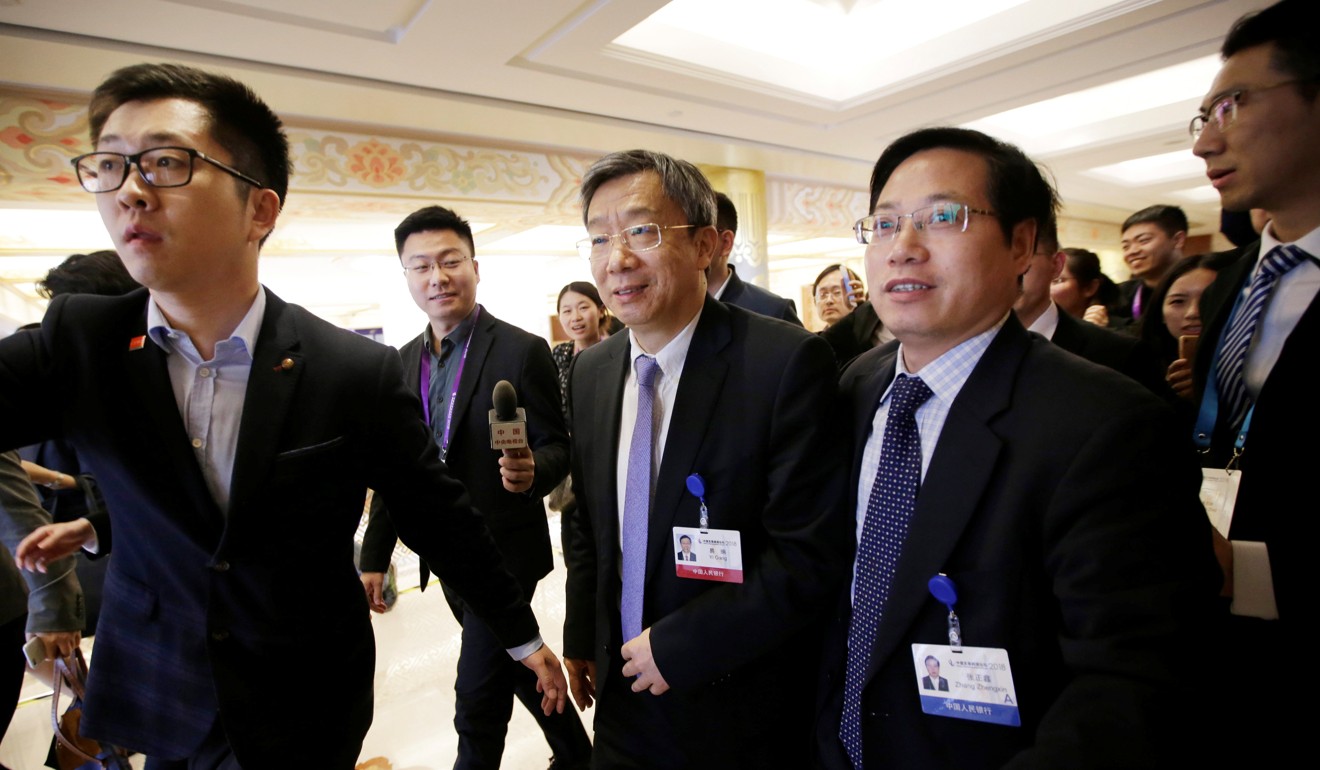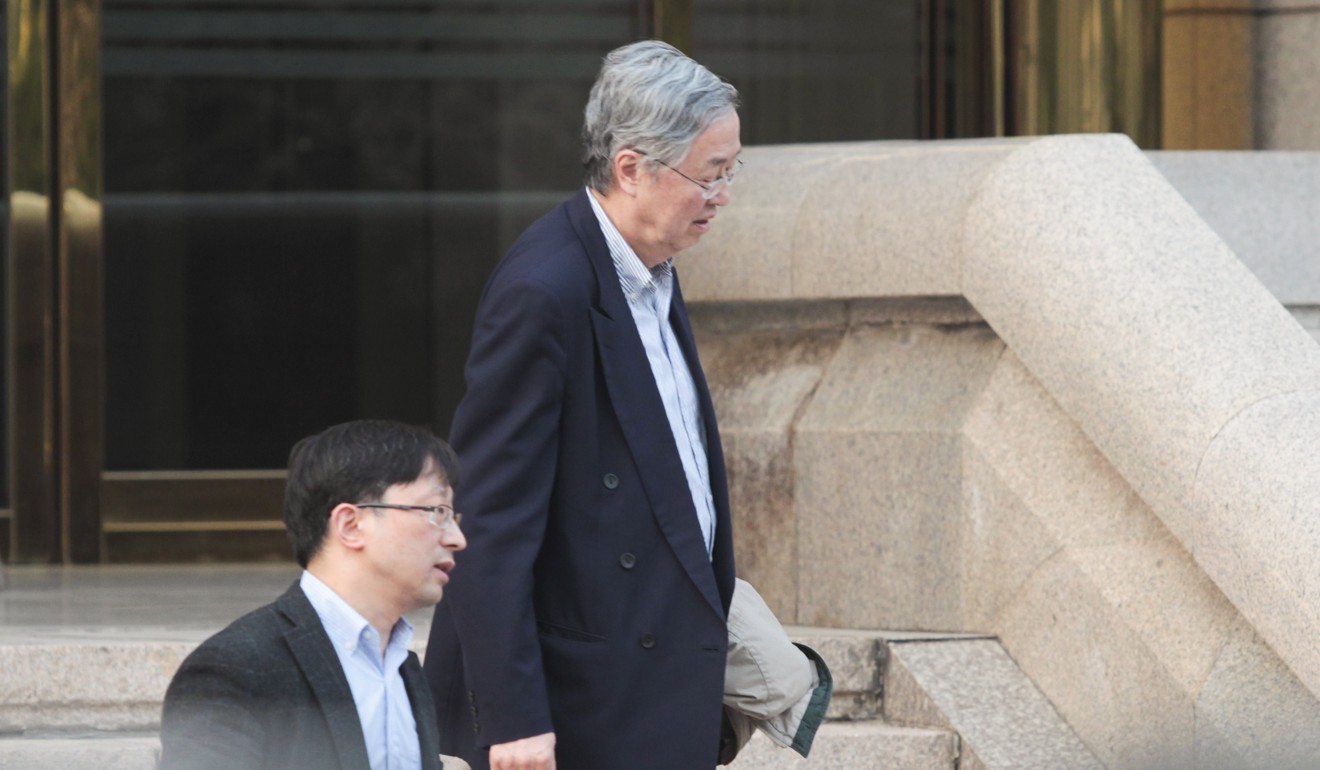
So who’s really in charge at China’s central bank? New double-headed leadership team muddies the waters
New party secretary likely to have greater real power than the bank’s freshly appointed governor
China named a new Communist Party secretary for the country’s central bank on Monday, creating a puzzling double-headed leadership structure.
Veteran reformer Guo Shuqing, who was confirmed last week as the head of the China Banking and Insurance Regulatory Commission, will take the bank’s party secretary role – a position that makes him the real boss in areas such as personnel appointments within the central bank, according to its website.
The appointment of the 62-year-old is extraordinary because the People’s Bank of China has just been given a new governor following the confirmation that former deputy governor Yi Gang had been promoted following the retirement of Zhou Xiaochuan.
Zhou, who had been in charge for more than 15 years, was both the governor and party chief, making him the go-to person regarding monetary policy for his counterparts in the US Federal Reserve and European Central Bank.

According to the central bank’s website, Yi is the number one as he will be in charge of the bank’s day-to-day operations.
China’s central bank law also stipulates that the governor is the person in charge.
However, Guo, who has a higher ranking in the Communist Party, will have authority over key issues such as personnel and institutional restructuring, making his real power greater than Yi’s – especially when his role as top financial regulator is factored in.
Analysts said Guo’s appointment was designed to reduce turf wars and infighting between China’s central bank and the merged regulator.
The former fragmented regulatory structure has been widely blamed for China’s lax financial supervision.

Chen Zhiwu, director of the Asia Global Institute at the University of Hong Kong, said Guo’s broad portfolio harked back to the 1990s when there was a strong central bank and sent a message that Beijing was ready to impose strict regulations after decades of deregulation and exuberance.
At the same time, Guo and Yi, are both widely experienced and will help vice-premier Liu He, the top economic aide to Xi Jinping, tackle China’s financial risks.
Liu is set to take over the Financial Stability and Development Commission, a newly created body with a general affairs office at the central bank.
Liu, in turn, is the head of the general affairs office for the Central Leading Group of Financial and Economic Affairs headed by Xi, which will be upgraded into the Central Financial and Economic Affairs Commission.

“No matter how the detailed structure is arranged, the basic political picture is that all will be under vice-premier Liu He,” Chen said.
Yin Zhongqing, deputy director of the National People’s Congress’s financial and economic affairs committee, said in an interview this month that China still needed to enhance policy coordination after the merger of two regulators.
Sun Wujun, a professor at Nanjing University, said Guo’s position as party secretary of the PBOC “would help to reduce conflicts and fractions between regulators”.
“His presence in the core leadership of the central bank will make sure voice of the financial institutions can be heard by the central bank when the latter drafts rules and policies,” he said.
Ding Shuang, chief Greater China economist at Standard Chartered Bank, who had previously worked for China’s central bank, said the arrangement was “to increase the coordination of monetary policy and financial regulation”.
While it remains unclear how Guo and Yi will divide their responsibilities, “the good thing is that their viewpoints are basically consistent,” he said.


